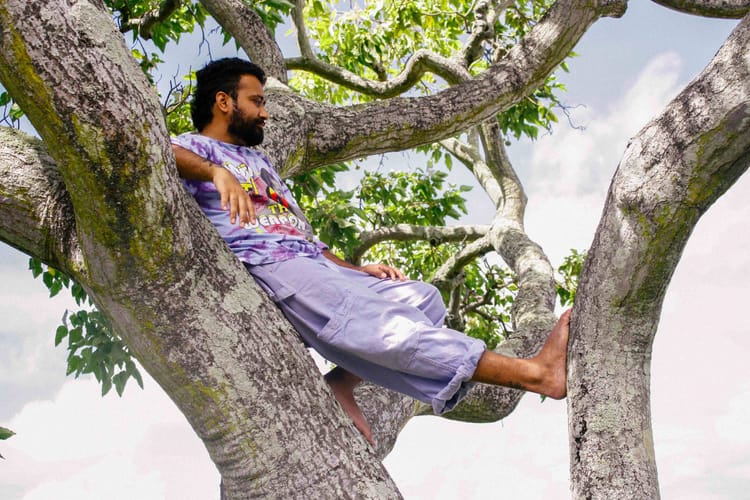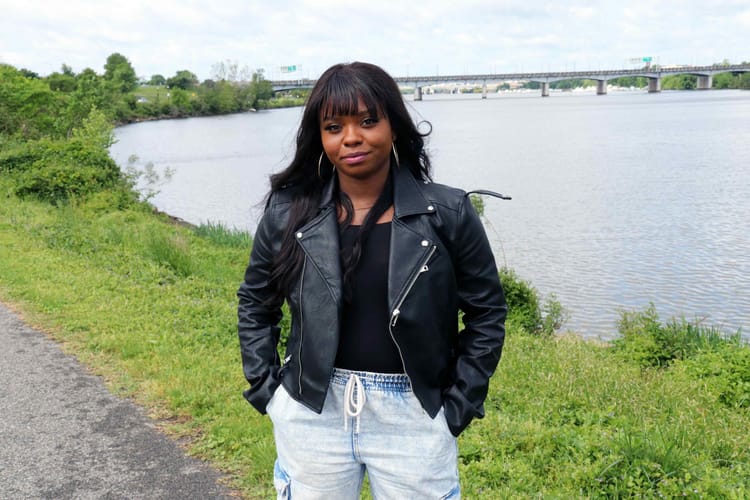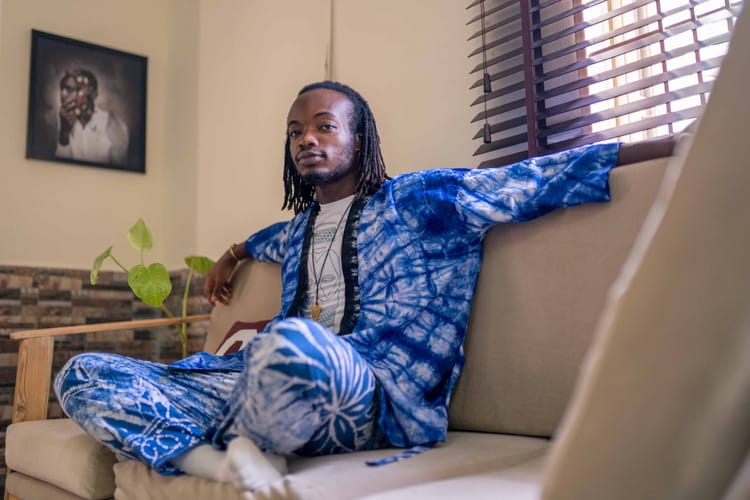alpha_rats: Virtual reality is a dream state
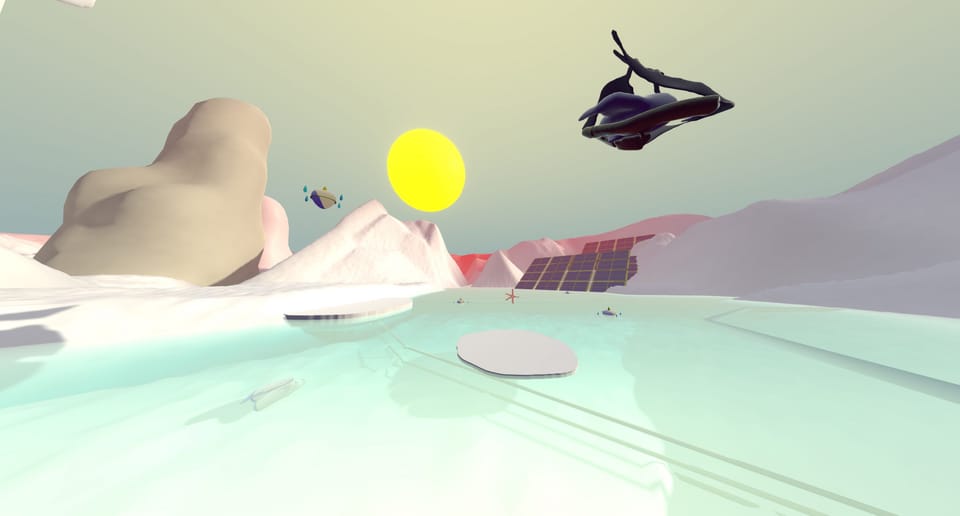
Between their complex combination of personal and freelance work, alpha_rats wears all sorts of hats. Whether it’s VR development, illustration, prototyping, designing levels, and more, the Russian-born, French-raised artist’s practice is living proof that fine art and technology can live hand-in-hand. Their technical and creative prowess coalesces and culminates in Celestial Reactors, a room-scale VR experience that simulates a research experiment that takes place in the biosphere of an artificial planet.
Alpha called us from their current home of Tokyo. We speak here about the relationship between utopias and dystopias, why virtual reality shouldn’t be thought of as an empathy machine, and the alchemical quality of technology.

What was the landscape like where you grew up? Was there a defining moment in childhood when you knew you wanted to do something creative with technology?
I grew up first in St. Petersburg and Moscow, Russia, then in the Czech Republic for a year. I spent most of my life in France until I moved to Germany at 19. I don’t know if there was a decisive moment where I decided I wanted to work with something creative or with technology. I was always drawing or writing stories. As soon as we had a computer, I was on it all the time and doing all kinds of things. I became pretty tech-savvy quite early on.
When it came to virtual reality, a lot of it came from anime and science fiction books—reading them and seeing the stories got me excited about VR, which was not a thing. It started to become available to the large public during my late teens, so it began to form around that time and crystallized around this. I can quite clearly trace why I wanted to get into VR, but not exactly why I went into computers or drawing.
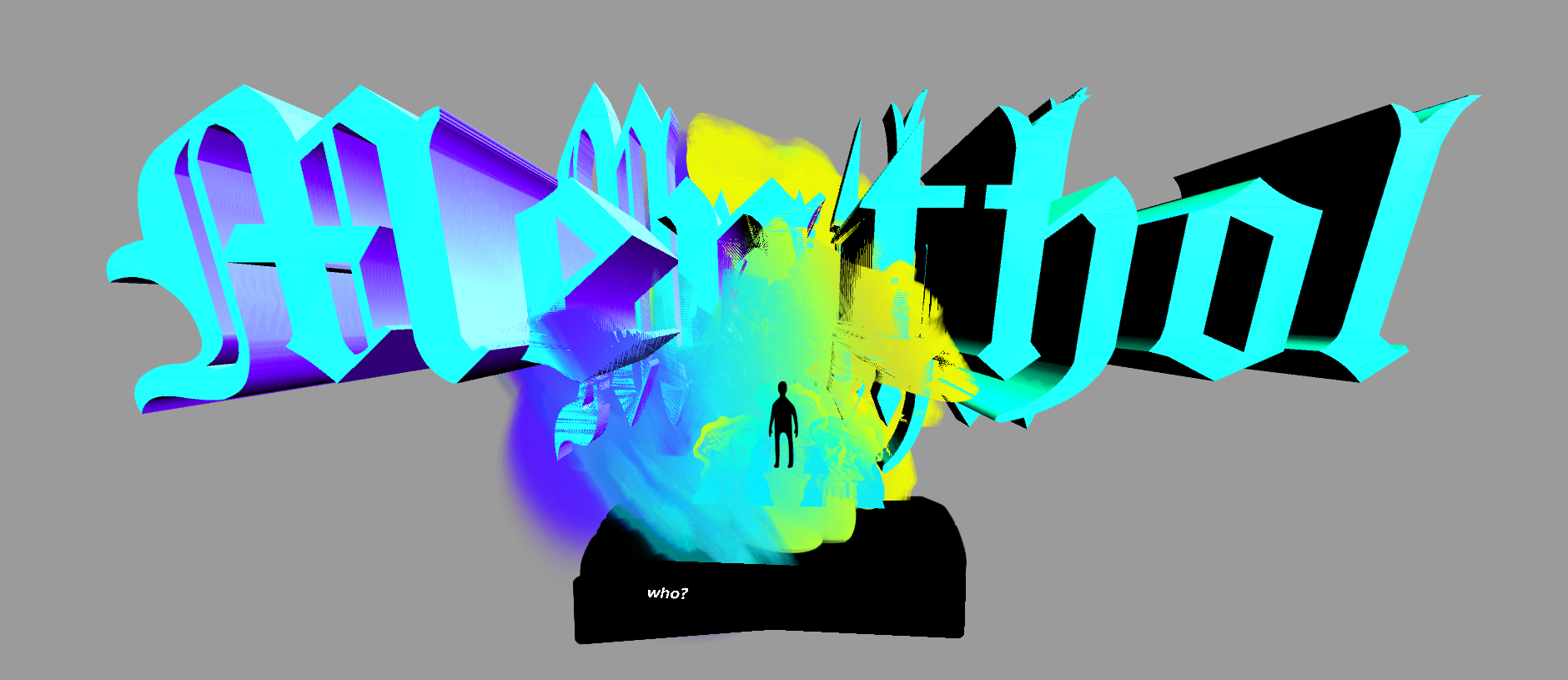

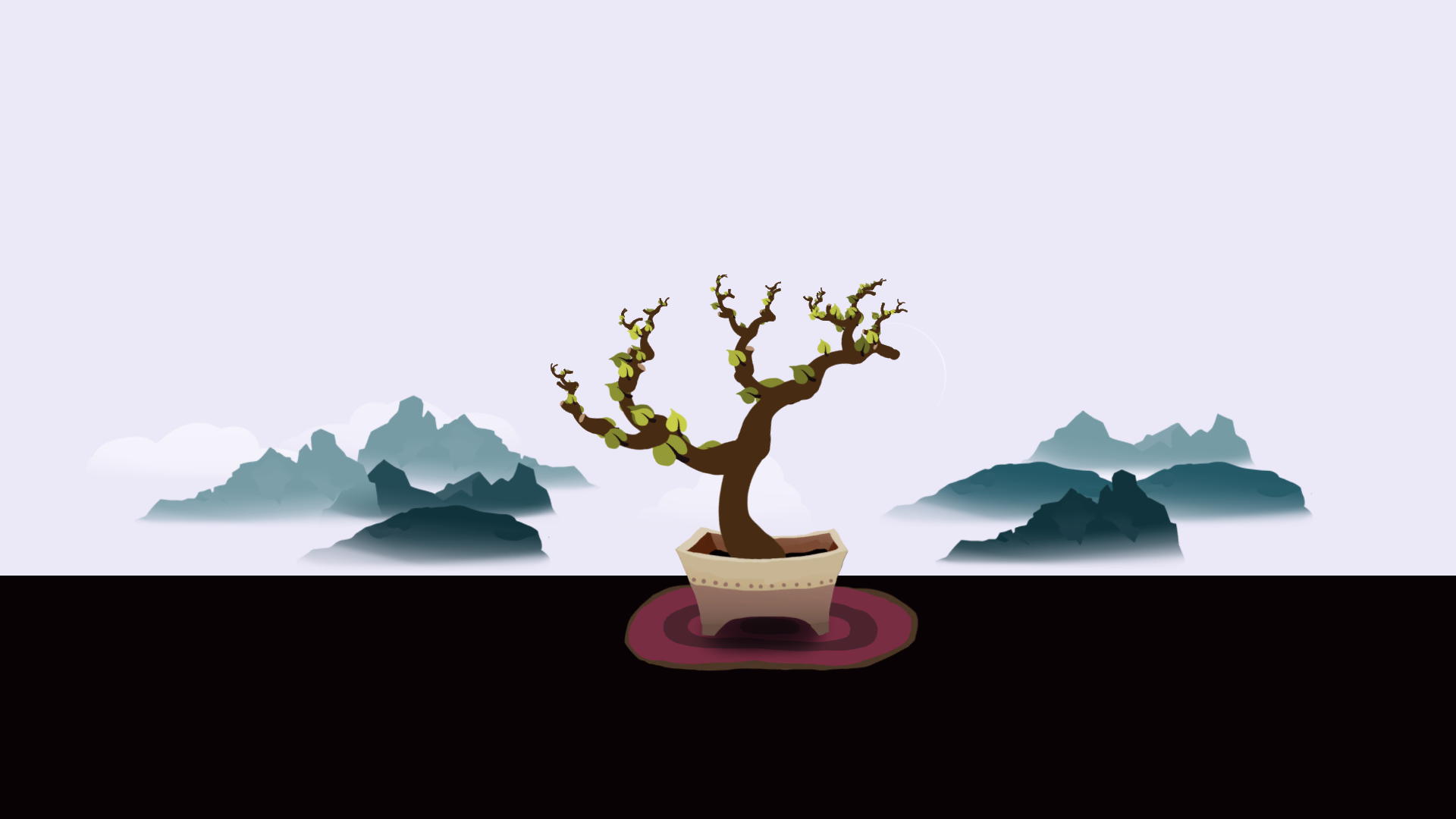
Growing up, I was inspired by everything to do with the space race. I was exposed to it through monuments, posters, or commemorations I saw when I was a kid. I grew up not in the USSR anymore, but it was still something you’d see in cartoons or different buildings. It fueled my interest in technology and science fiction and this idea of thinking of outer space and outer worlds. I had an obsession with this kind of stuff. As a teenager, I became inspired by William Gibson and his books. He described in quite visual terms what virtual reality could be.
Both this space race utopia and the cyberpunk books were inspiring because people were trying to imagine the future. But, of course, the future they envisioned is not what I want to express or the one I’m trying to manifest. When you do something like VR, that’s a bit like you try to manifest an idea of a word that you have in your mind. In my case, it’s fueled by this futuristic imagination idea.
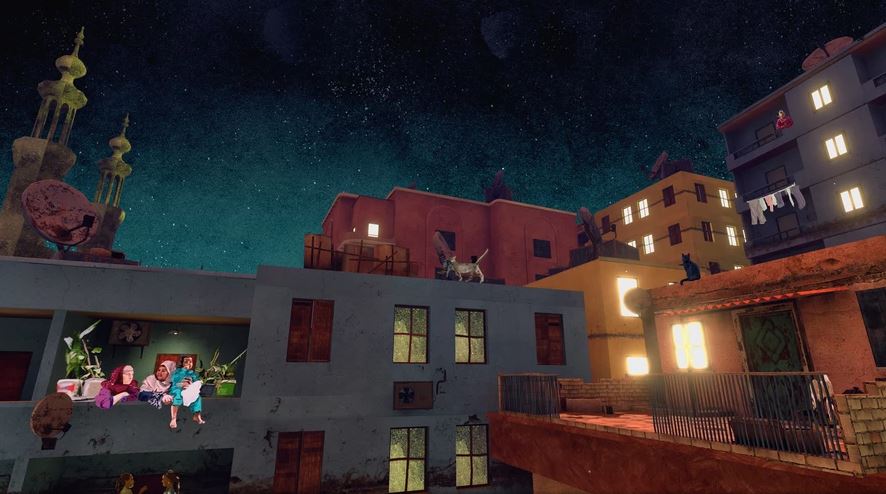
I would love to know more about some of the games you were making initially. What drew you to the space of VR after making those games?
I was quite methodical back then when it came to learning the craft. I’m self-taught, but I was quite structured. I learned to program, then I did some games, and was doing game jams because it was good practice. I also got excited by it because I like the challenge of making something in a very short amount of time. I made a different type of game for game jams for a while, but somehow in my mind, I was not fully free; I was not doing whatever I wanted to do. I still had this idea that, at some point, I might work in the gaming industry.
I started making html5 games, browser games and then switching to Unity to start to do 3D, from 2D to 3D. The first games I did for the jams were more like different experiments, and I mostly did them to learn the technology. I had a bigger game project at some point that I abandoned which didn’t see the light of the day at the end, which was maybe more ambitious and more personal.



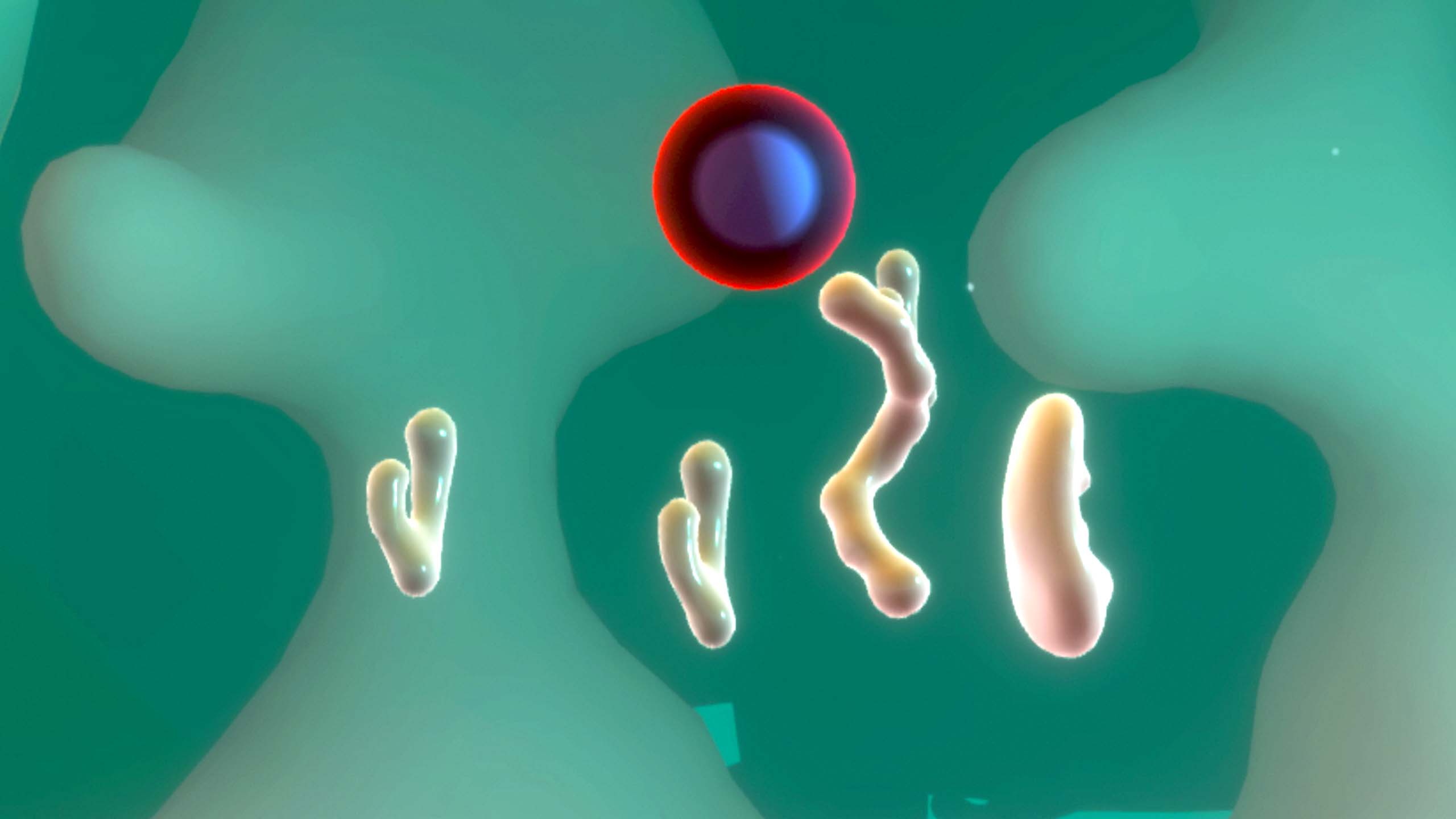
In your experience, what’s been the greatest difference in transitioning from working in 2D and 3D to VR?
I still draw. I tend to go back and forth between mediums. I’m not interested in doing something photorealistic or doing something super well-rendered. I would be more concerned with the shape or the composition of the scene I’m building, and the colors, and the overall mood, but I don’t care about anything which looks realistic because when I draw a lot, I end up finding a style that fits what I wanted to express I constantly go back and forth between both.
It’s not superior to do 3D versus 2D animation or drawing. If you want to make a world where people are immersed, you have to use 3D tools. Even when you draw something, somehow, the scene exists in your mind under a different form. The way I feel it, and the reason why I don’t see it as such a big deal difference, is that before you draw something or before you make it in 3D, you have a vague idea of what this thing exactly is.
It has an atmosphere, and it has colors. You have a feeling you want to express, and you have a general image in your mind of this space you want to represent. The moment you put it into 3D or 2D, that’s where you start to discover what this landscape you had in your mind has to show you. For me, using 2D or 3D to explore doesn’t make a huge difference. Maybe drawing is faster, so you can quickly get something down; get a general sense of where you’re heading, but you also don’t get the immersion you’d have with 3D.


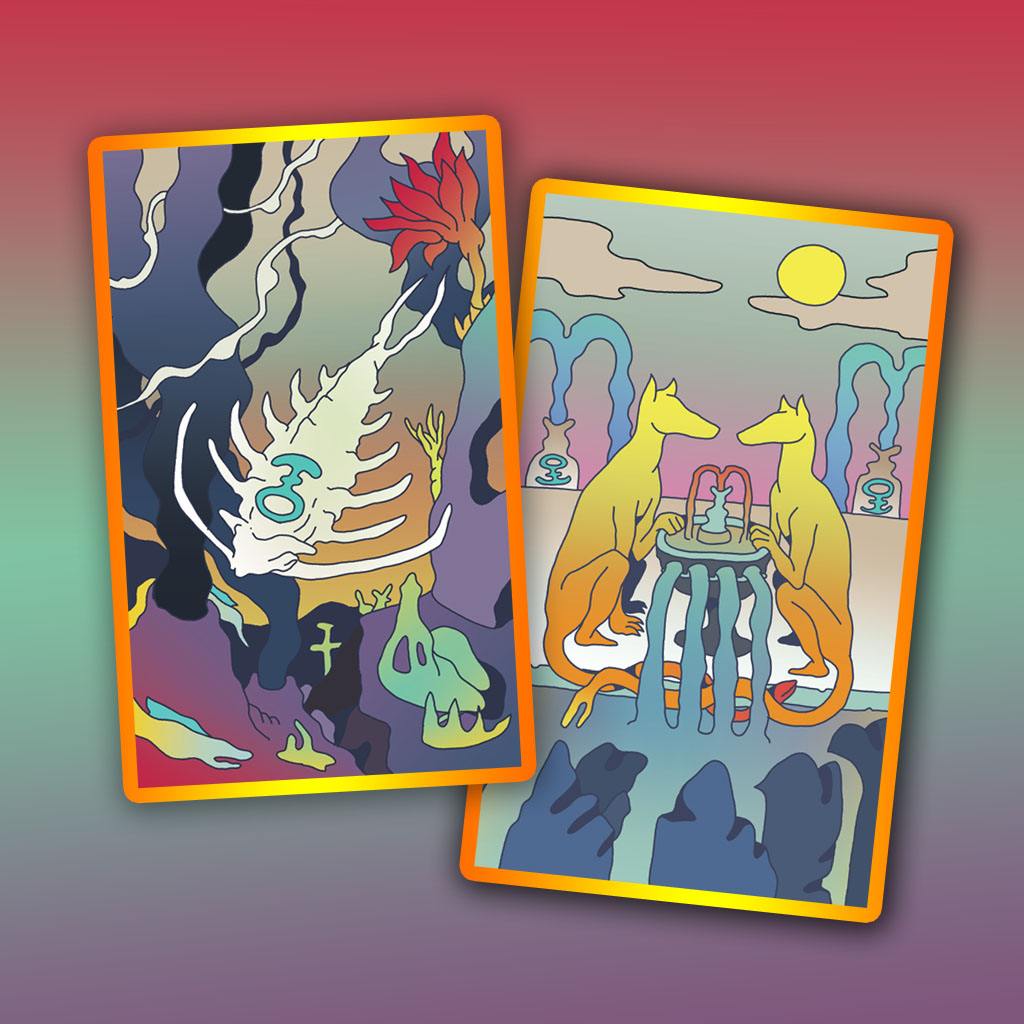
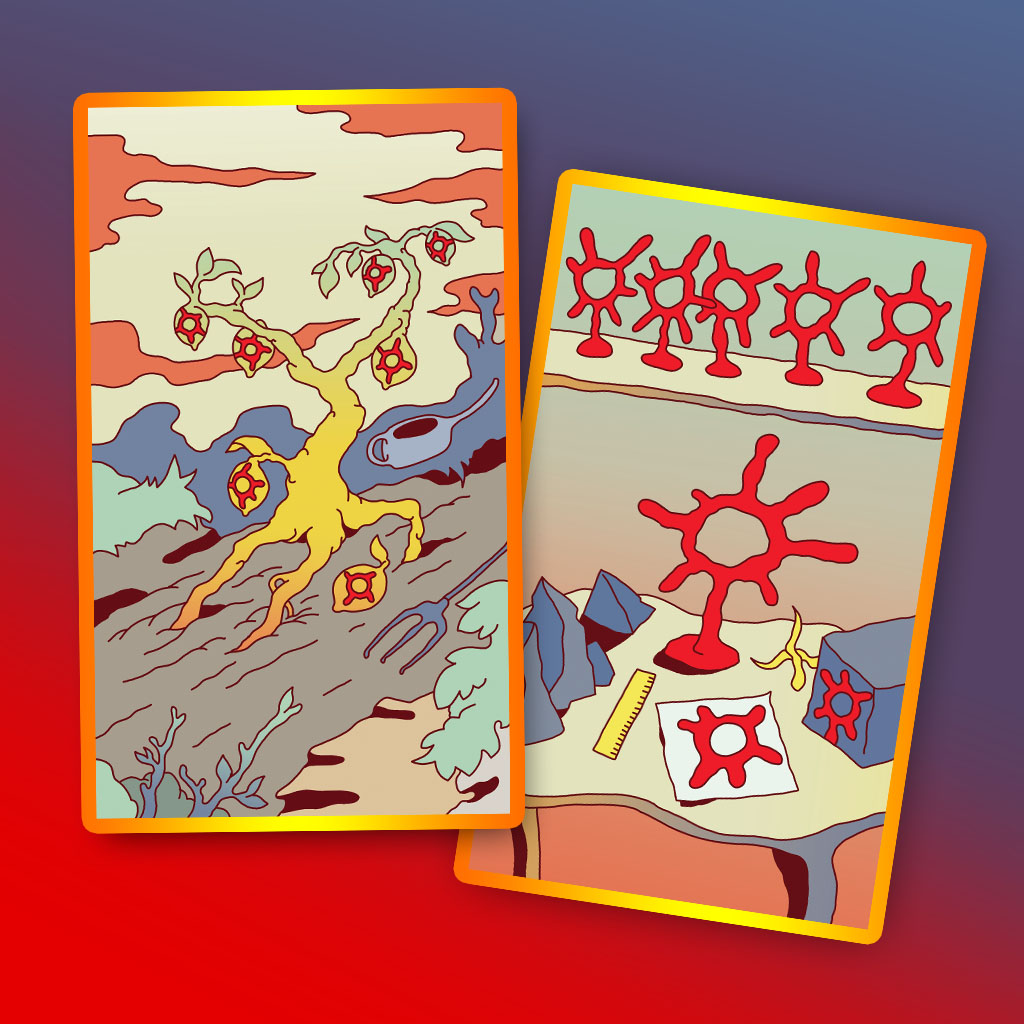
With some of my early prototypes, there’s this feeling of being inside the particular space because once you’re inside, you start to think about what else there is in this dimension. I’m in this space, and my mind starts to think, “Oh, what’s behind this door? What’s behind this here? Oh, I wanted to go up there.” Then, I go up there, you didn’t build the rest of the space, so you have to start thinking, “Okay, what should I add here?” It’s a similar exploration of this initial intuition I had. Even if it’s maybe a bit more impressive by drawing because I often get this feeling that you start drawing, you finish drawing, and then you look at it, and you’re like, “What is this?” It’s the same for code—you start coding, you end coding, and you’re like, “What have I done?”
My vision of technology evolved with time. I used to have this idea of technology being something that pushes people into the future because that’s also a bit behind my early inspirations. Now, my vision of it is different. For example, blockchain technology seems nice on the surface, but there is an ideology behind it. There is an economy behind it. The idea we have of technology usually is quite far away from what the technology itself is.
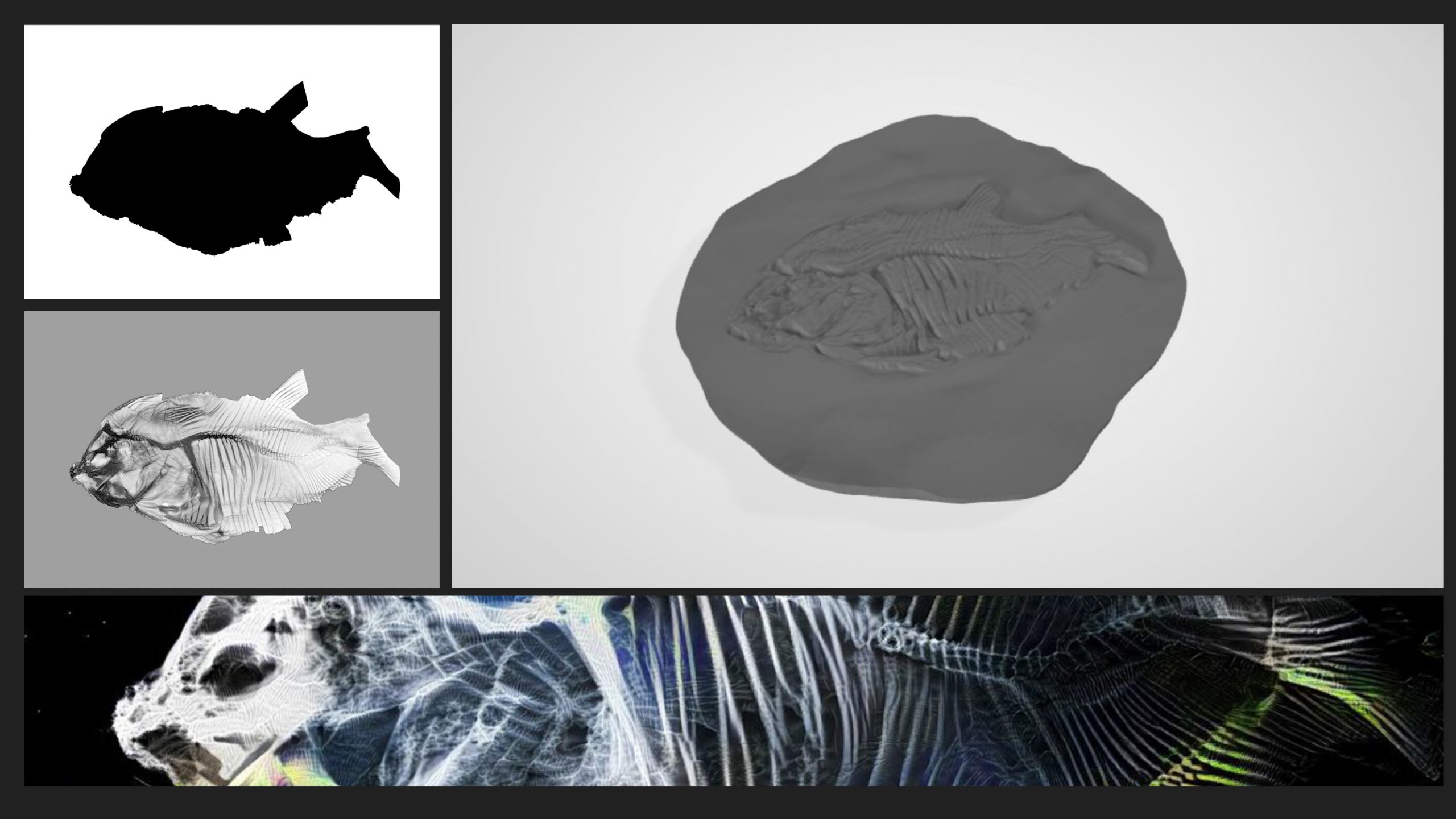

There is this idea of VR as this empathy machine. I was not really into this idea. I’m still not really into it. When I began work on VR documentary projects, my perspective about it changed. Relative to NGO documentaries, and in particular with the context of funding, I ended up seeing VR as something manipulative toward the audience actually towards the end. I don’t see at all that VR is superior to another medium. It’s just attractive to me because it’s a sensory experience, and that’s what I aim for. I like this sense of awe that it can provide, this idea that it’s a separate space from the world we’re in.
In one of his books called Dawn of the New Everything, Jaron Lanier expressed the idea that when you’re in VR, you’re giving the VR system control over your feedback loop. Because not only do you see things, but you can interact with things, and you get this feedback, and it overrides the perception you have of your environment. It sounds scary to say it like this. VR is a solitary experience—it could be social VR, but you isolate yourself in this bubble. It’s a medium that requires time. You need to have the time, and you need to be emotionally available; you need to be in shape because it’s a bit physical to be in this virtual space where you might be flying around or teleporting. These qualities make VR interesting for me—it’s really good to create a meditative and contemplative state of mind, which is what I like to push for.
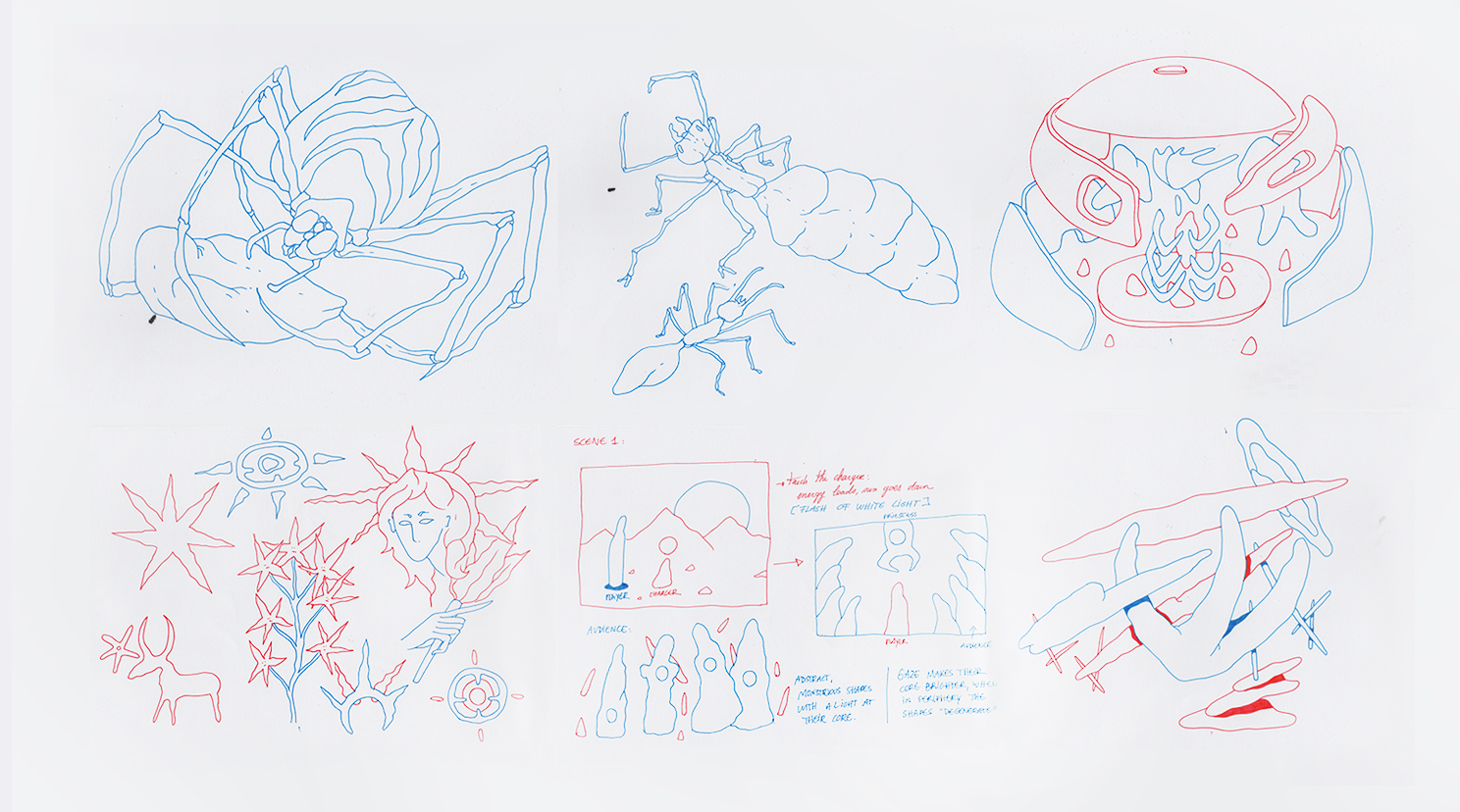

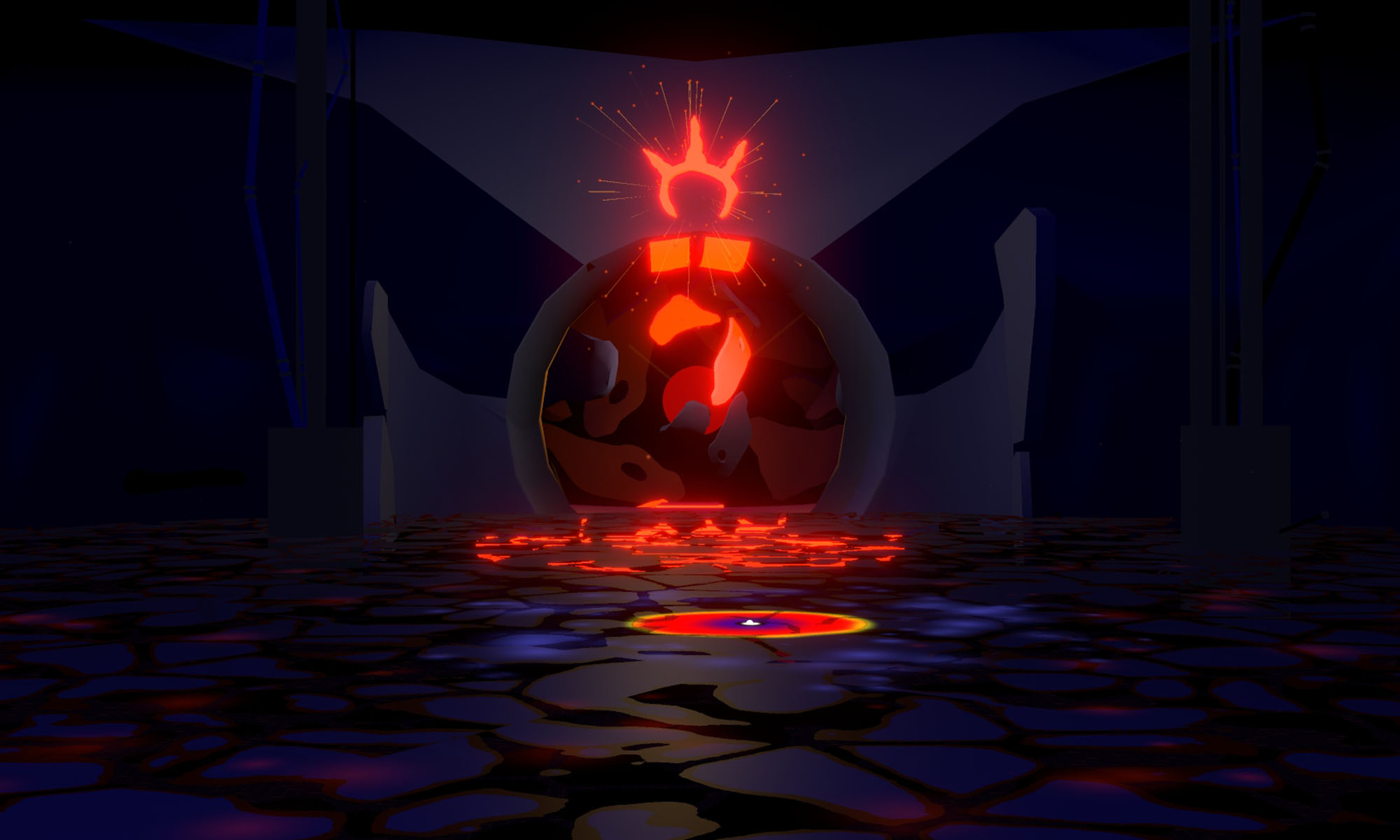
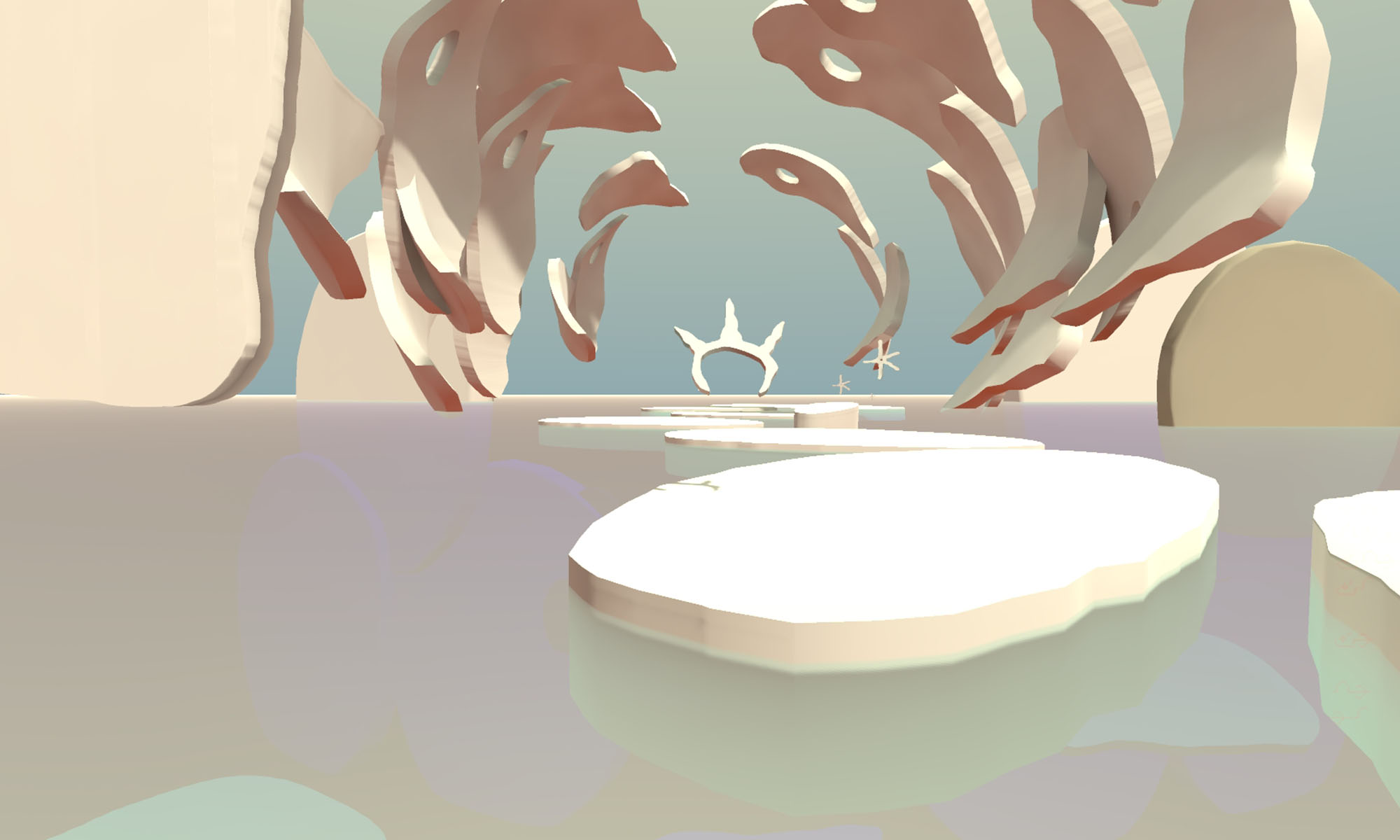
I appreciate the sentiment that VR is not an empathy machine. Technology doesn’t erase people’s identities or the power dynamics that structure society.
For me, VR feels more of something that isolates you and makes you look inward, rather than this empathy machine that allows you to step into someone’s shoes. It can erase your ego to some extent because embodiment is a big part of the ego.
I’d love to hear about your creative process for your practice. I’d love to hear about Celestial Reactors and how that project came to be.
My friend, a writer, came to me with a story and said, “I would like to do a comic book,” and I love comics books, and I love drawing. I tried at some point to do some comics when I was younger. I came back to them and said, “Let’s maybe try to make a VR out of this story.” I started building in the world. We did some research, found some visual references because it was a lot around the idea of the sun. That was the core symbol. We researched iconography. The story ended up changing as I was making the VR as well. It started as a comic book idea and then turned into a VR, and then we thought, “Okay, let’s still also keep the book,” because I realized the way I translate stories in VR or different mediums is abstract, and I’m not that good with narration. I see every project as an experiment. I don’t draw a strong line between different media because, for me, if it’s visual, I feel like I can do it, even if it’s a wrong idea.

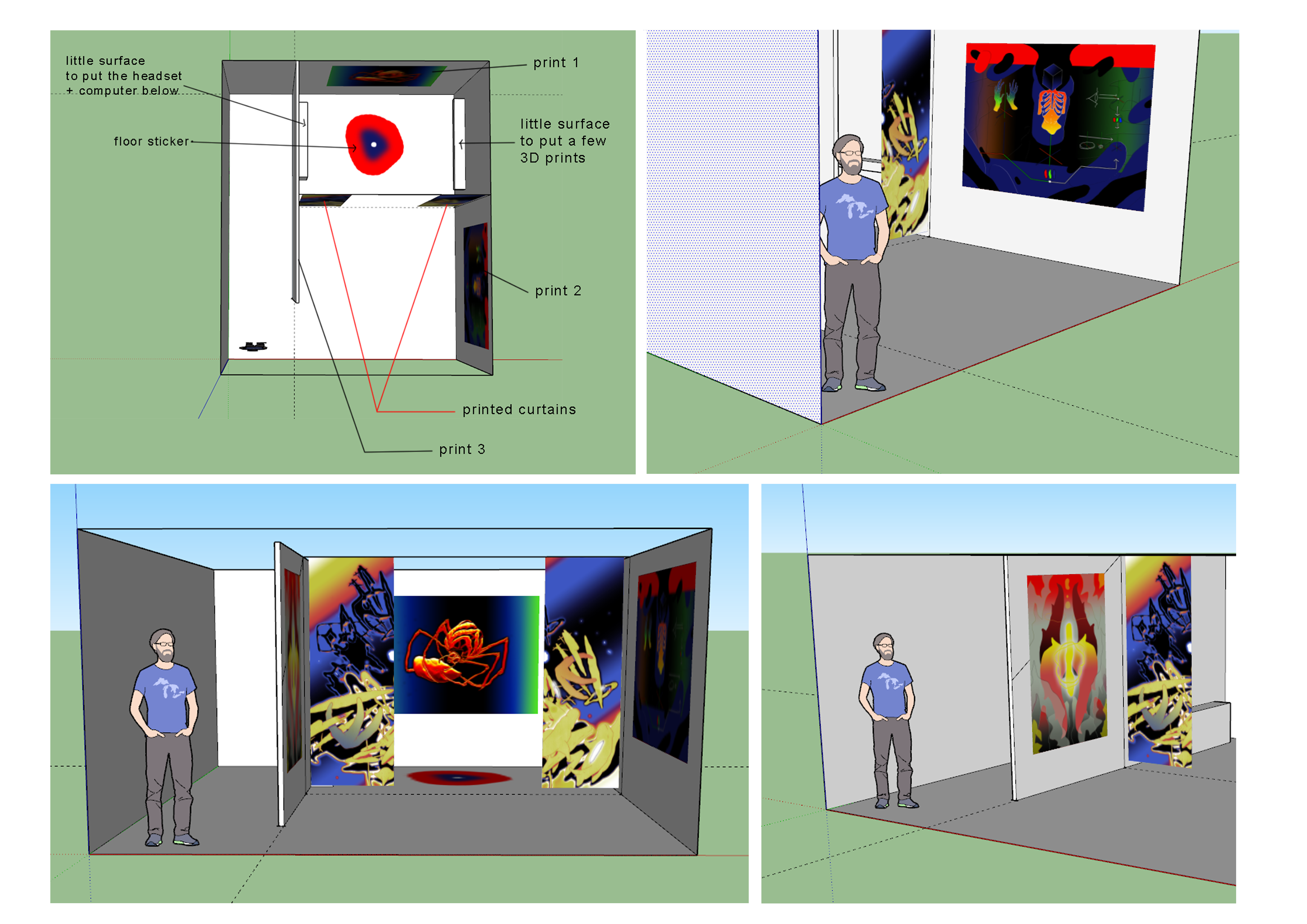
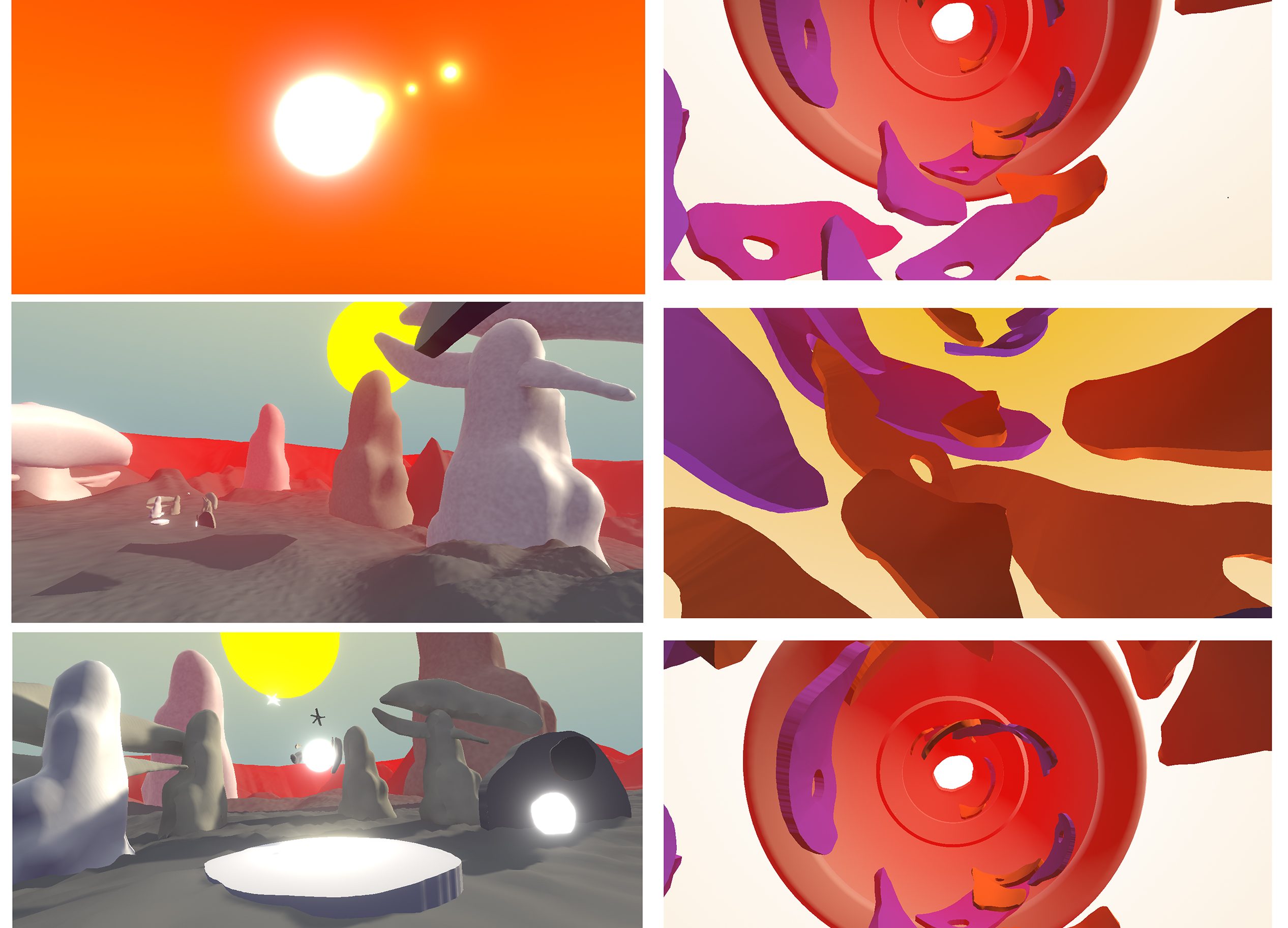
What draws you to the ideas and aesthetics inspired by space exploration and ecological issues as central themes?
I find biology and the natural world fascinating. Not only because it’s beautiful, but because it’s interesting. It’s difficult for me not to feel sad about what’s happening to our environment and what we’re doing to it. I tend to express these concerns in what I make. I believe that nature can provide us with beauty and knowledge. If we destroy it, it doesn’t mean that there will not be other sources of beauty somewhere else or that we can’t find knowledge somewhere else. Still, it’s the idea of humanity being the only thing remaining on the planet after destroying everything is very haunting.
For example, the Soviet idea of going to space is a utopia, but much of the cyberpunk stuff I was inspired from is more on the dystopian aspects. I don’t want to fall into the dystopian sense of, “Oh, here we are, we are in the survival game, fighting.” Survivalism thrives on this idea of destruction—this power fantasy of you as a human surviving all these odds. I like to explore more of the idea of a world without humans anymore; instead of this survival, we will build technology to bypass everything. In Celestial Reactors, it was the idea of some forms of technology persisting in the same way that we imagined that nature will persist after us if we ever disappear that would rebuild itself in some form of way.
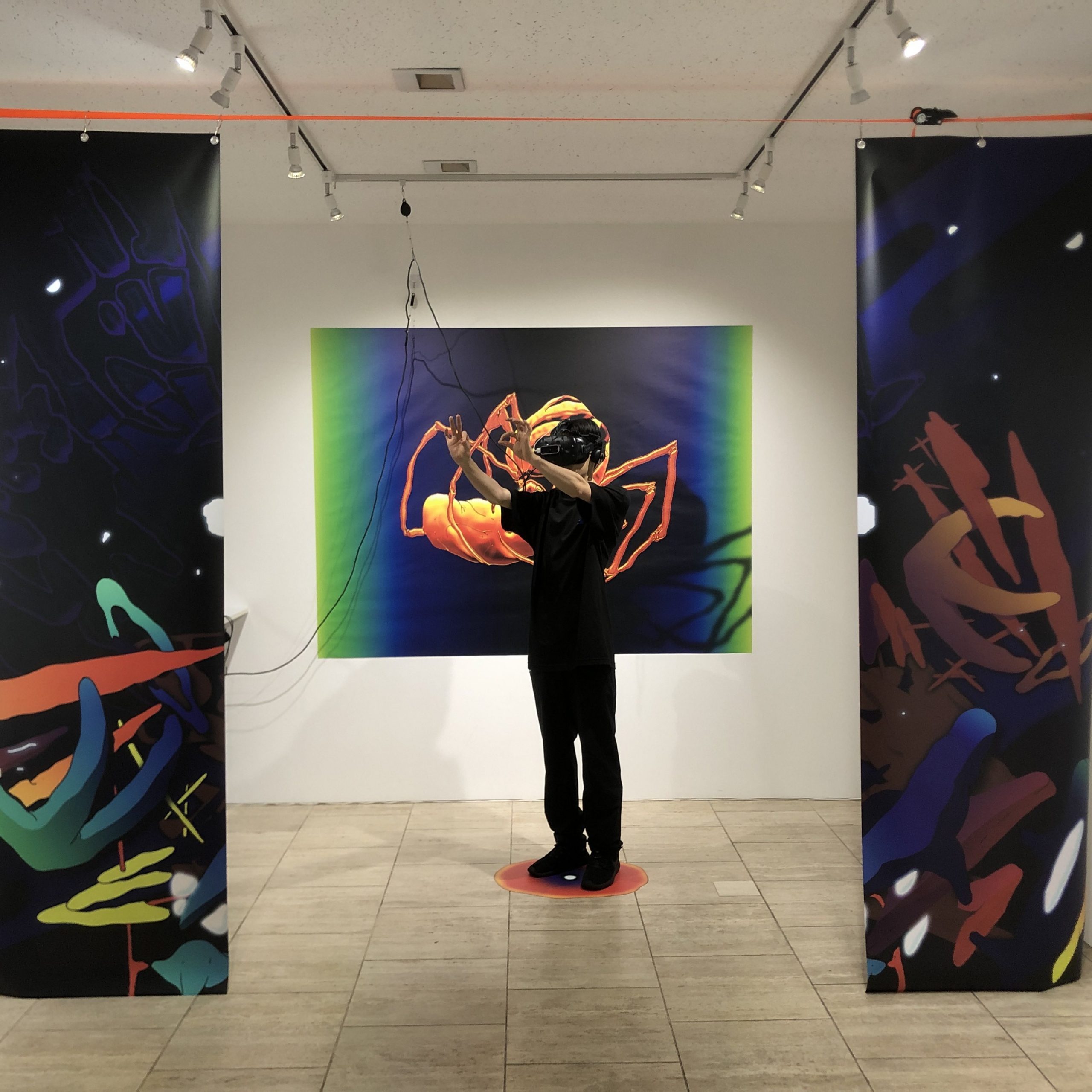
What was the importance of hand tracking in Celestial Reactors?
Now, some of the latest Oculus headsets have built-in hand tracking. I was using an additional sensor that records the gestures of your hands. The idea behind is that to move through space, and you would look where you want to go, and you would make this gesture aim. Then, when you release, you teleport to where you’re looking at–so, there is this connection between gaze and movement.

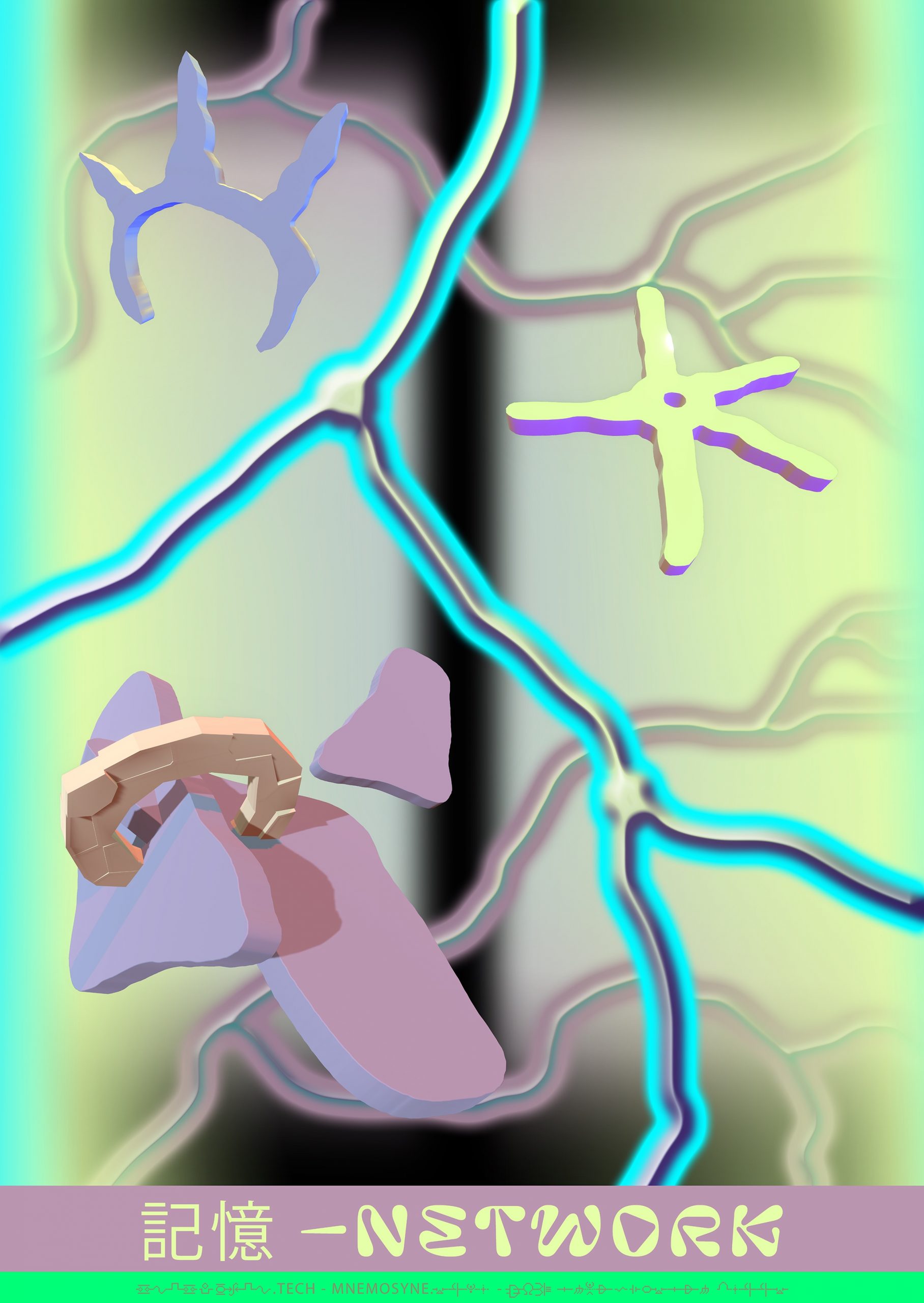
Posters for "Celestial Reactors."
That was the idea. Now, I’m working on a version of the game to release so making a version which was the switches with controllers. I ended up removing the direct gaze connection because it’s more difficult to manipulate.
Changing it for controller-only support It loses a bit of its psychological impact as well, so it’s a trade-off like it’s more usable. Still, it’s less impactful in terms of direct experience because I felt this direct connection between gaze and movement was quite strong, actually. I ended up having dreams where I would be in space, look somewhere and be like, “Oh, I would like to go out there” and find myself there. It’s really; somehow, my brain registered it as something that it can do that it can look somewhere and just end up here, and I’m sure it came directly from this VR interaction because I was working on it at that point.
Just like in my dreams, there’s this idea of technology as magic. It’s very believable for your brain when you’re in VR. I often compare it to a dream state. This is quite accurate because, in dreams, you have a memory of physical sensations, but you don’t have them. You don’t feel the burn. You feel the fear of the burn. I don’t remember waking up from a dream where you’re hurt and feeling physical pain. It’s an extreme example, but in VR as well, you have this visual world—if you’ve touched something spiky, you might have the psychological reaction of “Oh, this is a spiky thing.” It’s dangerous, but you will not feel the pain exactly.
Credits
Interview conducted in April, 2021. Edited and condensed for clarity.
Links
Follow Alpha on Instagram
Follow Alpha on Twitter

